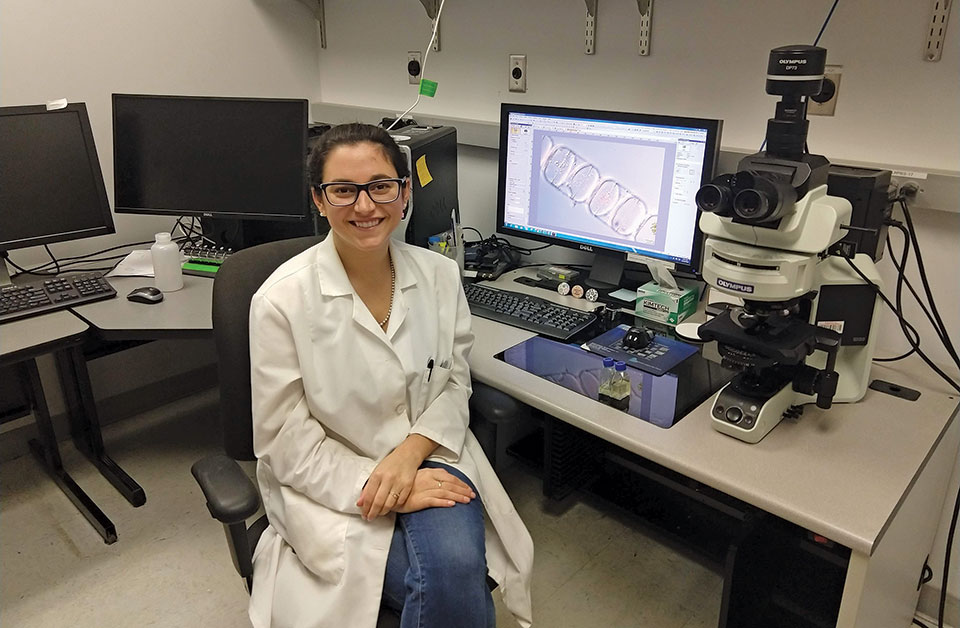Gabrielle Corradino ’11 showcases marine research through social media

Gabrielle Corradino ’11, who majored in biology at Salve Regina, spent what she calls 35 of the happiest days of her life filtering seawater on a ship in the Gulf of Mexico to answer questions about marine plankton diversity in the summer of 2017.
So when she tells you she loves research, you believe her. “I did my first internship when I was 15,” Corradino said. “I’ve always been interested in understanding the behavior of marine organisms, because I’m fascinated to know why they do what they do. When I’d go to the beach with my family as a kid, my parents couldn’t get me out of the water.”
That passion has led to an impressive string of achievements for the young scientist. She has been a National Geographic Explorer, a National Geographic Early Career Fellow and a Department of the Interior Global Change Fellow.
This May, she will receive her Ph.D. in biological oceanography from North Carolina State University. Through it all, she’s built an active social media presence, contributing to several ocean-based podcasts and hosting a professional Instagram account that aims to bring her research to the public.
“Reaching a broader audience with science has always been an important part of my work,” she said. “People typically don’t think of plankton as beautiful or complex organisms, but I hope the images I post will bring light to the microscopic base of our marine food webs.”
In 2019, Corradino began working as a Knauss Fellow with the National Oceanic and Atmospheric Administration (NOAA). The competitive fellowship matches highly qualified graduate students in the marine sciences with hosts in the legislative and executive branches of government for a one-year paid fellowship. The NOAA program has taken her out of the lab and into the halls of government to give her a new perspective on her field.
“This job is heavily based on policy-making,” Corradino said. “I visit different aquariums, sanctuaries and museums around the country to evaluate how we are educating the public. I hope to go to Capitol Hill to see what politicians think and value about marine science education. It’s a great opportunity for me to see another side of these issues. There are many paths available once you have your Ph.D., from academia to research to nonprofit work. I’m really interested in taking an interdisciplinary approach to my work.”
Corradino credits the liberal arts education she received at Salve Regina for that well-rounded perspective, which is unlike what students typically experience at large research institutions. “I’ve mentored students at big universities, and their entire academic schedule is devoted to science,” she said. “At Salve, I took courses in philosophy and literature, and I was introduced to other conversations like environmental justice. It helped me become a complete student.”
After receiving her biology degree from Salve Regina, Corradino took a few years to consider her next steps, working at Mystic Aquarium in Connecticut and teaching high school science. To her mind, all those experiences helped prepare her for her current venture.
“At 30, I’m a different person than when I was 22,” she explained. “Maturity changes the way you think about science and the questions you ask. I’m a better scientist because of it.”
This article was originally published in the spring 2020 edition of Report from Newport. There have been slight modifications from its original form.

